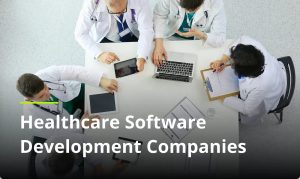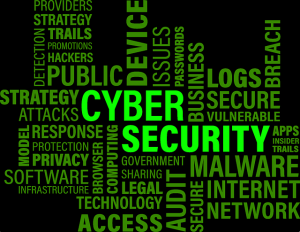Why are Industry-Specific ERP Solutions being more widely adopted?

Enterprise Resource Planning (ERP) software has become part and parcel of business across industries. No company can even think of surviving, let alone competing, without implementing a robust ERP solution. ERP systems manage business-critical functions — including finance, marketing, human resource, IT, sales, support service, vendor management, etc. They automate trivial processes such as form filling and data entry, thereby allowing the workforce to focus on issues that require human ingenuity.
The market is full of enterprise-wide ERP systems. Before purchasing ERP software, you should be well aware of your needs and have a sound strategy. There are many factors such as price, implementation time, vendor prestige, industry cutoff, etc. that you should keep in mind while selecting an ideal ERP software. ERP systems are available in two types — generic and industry-specific. This article sheds light on them and why industry-specific software is the better choice for your business.
What is Generic ERP software?
Generic ERP software provides enterprise-wide functionality. It will help you manage all the business-critical functions — from finance and marketing to sales and support services. It manages customer communication and also monitors your employees 24/7. Moreover, it alarms the concerned authorities if there is a technical glitch or a big systematic failure.
The generic ERP modules are as follows:
- Sales management
- Finance management
- Marketing management
- Accounting management
- Customer relationship management
- Inventory management
Although it provides a 360-degree view of your business, it isn’t customized according to your needs. It is excellent for a conglomerate but not so much for a start-up that needs limited features.
Find : Keep Pace in the Changing World with Robust Cloud Based ERP Software
What is Industry-specific software?
If you pick any two industries, you will find the difference in how they function. For example, the software industry focuses more on building codes than manufacturing products. On the other hand, the hardware industry buys machinery to manufacture products instead of writing codes. Any two companies operating in these industries will want to have ERP software that understands their specific needs.
Industry-specific ERP software does just that. It’s customized according to a company’s needs. If you are a manufacture-centric company, then the following ERP modules will interest you:
- Procuring raw materials
- Converting raw materials into finished products
- Designing the products
- Packing the products
- Monitoring the inventory/warehouse
- Maintaining relations with vendors, suppliers, and distributors
On the contrary, if you are a support-centric company, then the following ERP modules will make more sense for you:
- 24/7 Chatbot service
- Updating the FAQ section periodically
- Segmenting customer queries neatly
- Creating customer pipeline according to their queries
- Finding a free support agent and assigning it to the customer
Thus, industry-specific ERP software provides you the core elements that you require to outperform the competition in your industry. The only drawback is that in some cases, the license fee might be high. Otherwise, industry-specific ERP software packages are the way forward.
Why is an industry-specific ERP solution better than a generic one?
Generic ERP solutions provide a bouquet of functionalities that simultaneously support a multitude of operations. But only a handful of companies need each of those functionalities. Most companies require help in a few areas and prefer paying only for them. Customizing generic ERP solutions is expensive, and at most times, doesn’t align with the company’s objectives and goals. On the other hand, an industry-specific ERP system provides a 360-degree solution at a low cost, and the implementation time is also significantly less.
A critical attribute of industry-specific ERP software is that it takes care of customer needs and wants. It is specially designed to help the end-user accomplish their goals. Several business-critical features — including functional control, forecasting sales trends, process orientation, monitoring the market, action on customer feedback, customer segmentation, collecting business insights, to name a few — allow resolving the industry’s specific challenges.
Further, it helps companies to identify the problem areas and monitor their processes in a better manner. It allows manufacturing companies to minimize delivery delays and improve their quality.
For maximizing profits and outperforming competitors, a business needs to identify customers’ problems and fulfill their desire. It’s also essential to keep a watchful eye on competitor product prices, maintain the inventory, and have adequate stocks in the warehouse. Industry-specific ERP software helps companies identify problems and suggests practical solutions to do away with them in the web application.
Conclusion
Industry-specific ERP software packages provide you specific features for carrying out functions of your industry. You can change them or make necessary edits according to your needs and wants. The best thing about industry-specific software is that you will need to invest less when compared with Generic ERP software. If you plan to boost employee productivity and gain better profits, you should invest in an industry-specific ERP software and let the magic happen.
Author:
Nishant Joshi likes to read and write on technologies that form the bedrock of modern-day and age like Web Apps, machine learning, data science, AI, and robotics. His expertise in content marketing has helped grow countless business opportunities. Nishant works for Sage Software Solutions Pvt. Ltd., a leading provider of CRM and ERP System to small and mid-sized businesses in India.






